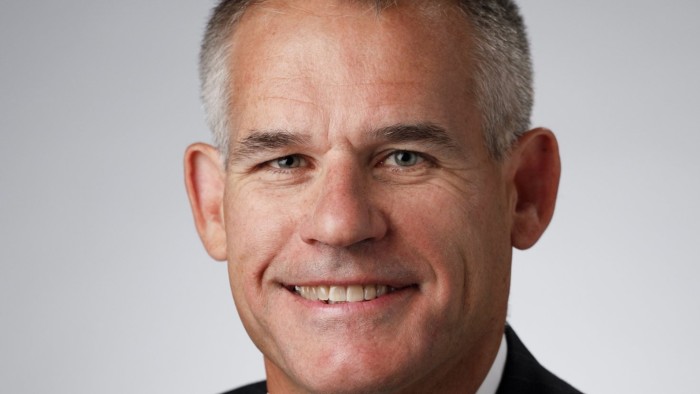Meet the dean: Doug Shackelford, Kenan-Flagler Business School

Simply sign up to the Business education myFT Digest -- delivered directly to your inbox.
When Doug Shackelford first joined UNC’s Kenan-Flagler Business School as an assistant professor in 1990, he had a lot of qualifications but no passport.
Back then, less than this was the norm. The North Carolina native, UNC alumnus and now dean of Kenan-Flagler recalls: “You could almost count on one hand the number of non-Americans among that group of about 80 staff.”
Both the school and the people in it have become a lot more globally-minded since. Today, about a third of faculty, 38 per cent of the MBA students and many of those taking the school’s online programme, were born overseas.
Prof Shackelford might have had some catching up to do himself, but he embraced the opportunities to travel after taking up his teaching post, first as an international taxation expert and then as the first head of Kenan-Flagler’s online MBA programme, MBA@UNC.
“For the last two decades or so, if you had the word multinational on an initiative it was likely to get funded, and I have been a beneficiary of that,” he beams, clearly pleased with the opportunities his career have opened up for him.
This was good preparation for the position of dean, which he has held since February 2014. He is now on a plane at least a couple of times a month, visiting students from Shanghai to London.
However, creating a multicultural campus is not sufficient, Prof Shackelford says, pointing out that students can still be found grouped among compatriots in the school’s canteen.
“Humans are tribal,” he explains, sounding somewhat pessimistic about this state of affairs. “We revert back to our tribes.”
Prof Shackelford’s solution to this has been to try to devise what he calls “global competency” among students, reappraising the teaching at the school to see how Kenan-Flagler cannot just teach how a globalised world operates, but get students to understand the nuances of working in different parts of the world.
“We cannot be sure that we can drop an alum into Gambia and they will be able to run a company, but there ought to be some level of competency which means they know that they can do A, B or C by doing X, Y or Z.”
This means teaching what Prof Shackelford calls the hard skills, such as understanding foreign currencies and capital markets, as well as the soft skills that enable a student to empathise with a local culture.
“The hardest thing to teach is how to be sensitive, reflective. It is getting people to say that if they are in a new environment, they need to understand how the people work there.”
There are signs that Kenan-Flagler is achieving its goals of being a more internationally-minded school. In this year’s FT ranking of the top 100 full-time MBA programmes, Kenan-Flagler was in the top half for both its overall rank and its position for international course experience.
The online programme, which Prof Shackelford helped create, is now taking Kenan-Flagler’s teaching to remote parts of the planet for those who could not otherwise attend business school, such as US military personnel in Africa, he describes.
Prof Shackelford clearly wants to achieve more in his role as dean, claiming that he would like to be in the job for more than five years.
“I am at a good place in my career to be doing this,” he says, noting that the only downside about moving from being a full-time professor to dean is that he has less leeway to choose where he goes because so many people are relying on him.
“There are lots of people who want and need my attention now,” he adds. “I don’t really control my calendar.”
Comments